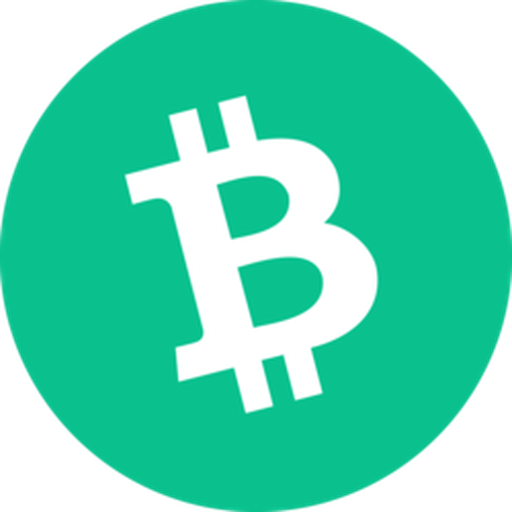Solana vs Bitcoin Cash – Price, Market Cap & Performance Compared
Which coin performs better – Solana or Bitcoin Cash?
We compare the current price (211.95 $ vs 556.63 $), market cap (115 139 188 576 vs 11 089 401 947) and all-time high (293.31 vs 3 785.82).
Find out which one stands out right now!
Solana is currently trading at 211.95 $, while Bitcoin Cash stands at 556.63 $. These cryptocurrencies differ not only in price but also in market presence.
The market cap of Solana is around 115 139 188 576, and Bitcoin Cash has about 11 089 401 947. Their respective all-time highs are 293.31 for Solana and 3 785.82 for Bitcoin Cash.
Daily trading volume and the 24h price change (-1.06296 % vs 0.06107 %) also offer key insights.
Compare all metrics now and see which coin fits your investment strategy best!
Solana
Solana is an advanced blockchain platform that has quickly gained traction due to its high-speed and low-cost transactions. Its architecture is designed to handle thousands of transactions per second, which positions it as a strong competitor in the decentralized finance space. As developers continue to build on its network, Solana is poised to support a diverse range of applications, making it a significant player in the cryptocurrency ecosystem.
more informationBitcoin Cash
Bitcoin Cash emerged as a result of a split in the Bitcoin community, focusing on increasing transaction speed and lowering fees compared to Bitcoin by enlarging the block size. Its developers aimed to make the coin more practical for everyday transactions, positioning it as "digital cash." As this cryptocurrency continues to evolve, it faces the challenge of maintaining its original ethos while competing with newer blockchain technologies.
more information

|

|
|
|
|
General Information |
|
|---|---|
|
Title
Solana
|
Title
Bitcoin Cash
|
|
Symbol
sol
|
Symbol
bch
|
|
Whitepaper
-
|
Whitepaper
-
|
|
Website
|
Website
|
|
Community
-
|
Community
-
|
|
Last Updated
2025-09-24 23:29
|
Last Updated
2025-09-24 23:29
|
Price Data |
|
|---|---|
|
Current Price $
211.95 $
|
Current Price $
556.63 $
|
|
High 24h
216.29 $
|
High 24h
563.28 $
|
|
Low 24h
206.33 $
|
Low 24h
552.9 $
|
|
Price Change 24h
-2.27718 $
|
Price Change 24h
0.33971 $
|
|
Price Change % 24h
-1.06296 %
|
Price Change % 24h
0.06107 %
|
Market Data |
|
|---|---|
|
Market Cap
115 139 188 576
|
Market Cap
11 089 401 947
|
|
Total Volume
8 426 373 441
|
Total Volume
252 326 816
|
|
Market Cap Change 24h
-1 726 644 361
|
Market Cap Change 24h
-18 892 961
|
|
Market Cap Change % 24h
-1.47746 %
|
Market Cap Change % 24h
-0.17008 %
|
|
Return on Investment (ROI)
-
|
Return on Investment (ROI)
-
|
Supply and Availability |
|
|---|---|
|
Circulating Supply
543 390 185
|
Circulating Supply
19 930 081
|
|
Total Supply
610 459 596
|
Total Supply
19 930 081
|
|
Max Supply
-
|
Max Supply
21 000 000
|
Historical Data |
|
|---|---|
|
All Time High (ATH)
293.31
|
All Time High (ATH)
3 785.82
|
|
ATH Change %
-27.78745 %
|
ATH Change %
-85.30274 %
|
|
ATH Date
2025-01-19 11:15
|
ATH Date
2017-12-20 00:00
|
|
All Time Low (ATL)
0.50080
|
All Time Low (ATL)
76.93
|
|
ATL Change %
42 194 %
|
ATL Change %
623.22498 %
|
|
ATL Date
2020-05-11 19:35
|
ATL Date
2018-12-16 00:00
|
Solana
The Rise of Solana: A Deep Dive into the Blockchain Superstar
Solana (SOL) has emerged as one of the most prominent blockchain platforms in recent years, showcasing impressive growth and technological advancements. Known for its high-speed transactions and low fees, Solana has become a favorite among developers and investors alike. This article aims to explore the unique features of Solana, its historical performance, as well as its future prospects.
Key Features Setting Solana Apart
Solana's key selling point is its ability to process transactions at lightning speed compared to other blockchains. It utilizes a unique consensus mechanism known as Proof of History (PoH), which enables the network to handle thousands of transactions per second (TPS), a feat unmatched by many other blockchains. This innovation allows for scalability without compromising on speed or cost, making Solana an attractive option for decentralized applications (DApps) and decentralized finance (DeFi) projects. Additionally, the low fee structure further enhances its appeal in the crypto space.
Advantages of Solana
One of the main advantages of Solana is its scalability. As the demand for blockchain technology grows, the need for scalable solutions becomes more critical. Solana's architecture allows for rapid scaling, positioning it as a robust platform for future expansion. Furthermore, Solana boasts an active developer community that continuously contributes to its ecosystem, resulting in a diverse range of applications and services being built on the network. The high throughput and low transaction costs make it an ideal environment for developers, encouraging innovation across various sectors.
Challenges and Criticisms
No technology comes without its set of challenges, and Solana is no exception. One of the criticism often aimed at Solana is its level of decentralization. Critics argue that the network's reliance on a limited set of validators potentially undermines its decentralized ethos. Additionally, like other emerging technologies, Solana faced network outages in the past, raising concerns about its reliability and stability during high-stress periods of network activity.
A Look Back: Solana's Historical Performance
Solana's journey began in 2020 when it was introduced to the crypto world. Its price hit an all-time low (ATL) of $0.500801 in May 2020. The blockchain quickly garnered attention, and by November 2021, it reached an all-time high (ATH) of $259.96. Solana's price movements during these years reflect the broader market sentiment and growing interest in scalable blockchain solutions. Despite experiencing significant market volatility, including a notable price correction from its ATH, Solana has maintained a strong market presence.
Future Prospects of Solana
As we look to the future, Solana's prospects seem promising. Its growing ecosystem, coupled with continuous technological improvements, positions it well to capture a significant share of the blockchain market. The platform's focus on scalability and efficiency will likely drive more developers and projects to choose Solana as their preferred blockchain network. Furthermore, ongoing partnerships and integrations suggest a positive trajectory for Solana, allowing it to compete with other major blockchains in the years to come.
In conclusion, Solana represents a significant development in the crypto landscape, distinguished by its speed, scalability, and low-cost transactions. While the network faces inherent challenges that accompany any young and rapidly growing technology, the potential for innovation and adoption remains substantial. As Solana continues to evolve, it will undoubtedly be a crypto story worth following closely.
Bitcoin Cash
Understanding Bitcoin Cash: A Deep Dive into Its Strengths and Weaknesses
Bitcoin Cash (BCH) emerged in the cryptocurrency arena as a significant player, thanks to its aim to resolve some of the pressing issues faced by Bitcoin. Launched in 2017 as a fork from Bitcoin (BTC), Bitcoin Cash sought to enhance transaction speed and reduce fees, making it more viable for everyday transactions. However, like any digital asset, it carries its own set of pros and cons, which are worth examining to understand its role and potential future in the cryptosphere.
The Rise and Development of Bitcoin Cash
Bitcoin Cash was created during a period when the Bitcoin community was heavily debating scalability solutions. The primary issue was the block size limitation on Bitcoin's blockchain, which restricted the number of transactions that could be processed in a given period. Bitcoin Cash addressed this by increasing the block size from 1MB to 8MB, and later even up to 32MB, thereby allowing more transactions to be processed at a significantly faster rate.
Since its inception, Bitcoin Cash has been through numerous changes and updates, continually refining its protocol to better serve its user base. Despite these improvements, BCH has experienced a volatile market journey, with its price reaching an all-time high (ATH) of $3,785.82 in December 2017, and an all-time low (ATL) of $76.93 in December 2018.
Advantages of Bitcoin Cash
The increased block size is one of the prominent advantages of Bitcoin Cash, as it allows for faster transaction processing, making the network more scalable as compared to Bitcoin. This scalability translates into lower transaction fees, which is a considerable advantage for users who perform frequent transactions or conduct microtransactions.
Furthermore, Bitcoin Cash enjoys widespread merchant support across the globe, allowing it to serve as a medium of exchange much more effectively than its predecessor, Bitcoin. The community-driven approach to development also maintains its appeal among decentralization advocates, who prefer less centralized control and more robust user decision-making.
Drawbacks of Bitcoin Cash
Despite its benefits, Bitcoin Cash is not without drawbacks. It faces fierce competition not only from Bitcoin but also from other altcoins that offer innovative solutions and features. Additionally, the larger blocks, while beneficial in terms of speed, come with an increased storage requirement, which could lead to centralization as only those with sufficient resources can operate full nodes.
Moreover, the division between Bitcoin and Bitcoin Cash has sometimes led to community rifts and controversies, which could undermine investor and developer confidence. The greater potential for hard forks within its development process further adds uncertainty to its future.
Looking Ahead: The Future of Bitcoin Cash
The future of Bitcoin Cash is filled with possibilities as it continues to uphold its mission to be a peer-to-peer electronic cash system. As of the last update, the market price of Bitcoin Cash stands at $356.01, a significant fall from its ATH but a notable rise from its ATL.
For Bitcoin Cash to thrive, it will need to focus on expanding its utility and adoption across diverse industries. The continual improvement in its protocol and infrastructure, alongside enhanced security mechanisms, will be paramount in maintaining relevance and gaining a competitive edge.
The overall market dynamics, regulatory landscapes, and technological advancements in blockchain technology will also play crucial roles in shaping the trajectory of Bitcoin Cash. While it might not entirely overshadow Bitcoin, Bitcoin Cash has carved a niche for itself and will likely continue evolving to meet the demands of an ever-changing digital economy.

